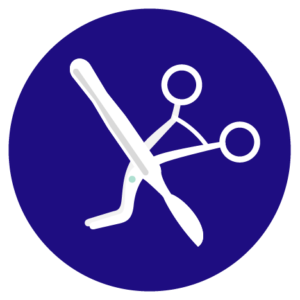
MINIMALLY INVASIVE SPINAL SURGERY
Minimally invasive spine surgery uses smaller incisions in the back than standard surgery. This method often causes minimum damage to nearby muscles and other tissues, leading to less pain and faster recovery after surgery.
What is Minimally Invasive Spinal Surgery?
Minimally invasive spine surgery is a technique, where the surgeon makes smaller incisions in the back than standard surgery. This method often causes minimum damage to nearby muscles and other tissues, leading to less pain and faster recovery after surgery.
I work with a team of three Consultant Surgeons, Consultant Radiologist and a very experienced Physiotherapy team and discuss all complex cases in our fortnightly multidisciplinary team meeting (MDT) to be able to provide a first class service .
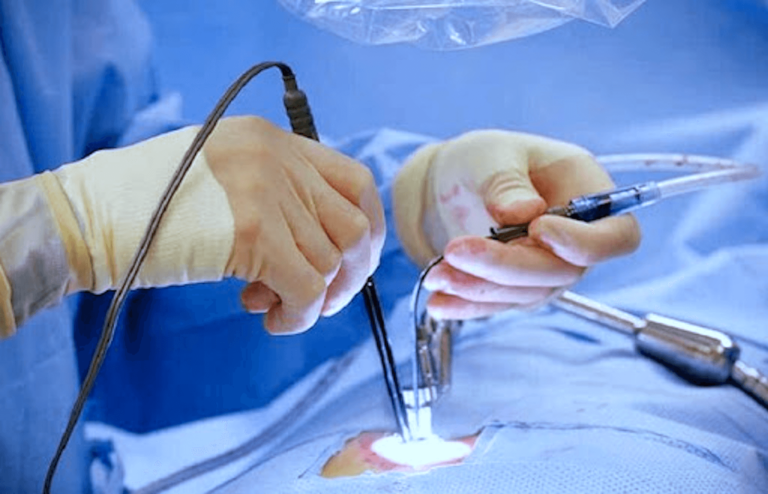


Minimally Invasive Spine Surgery
This technique of surgery reduces the damage of surrounding soft tissue and much smaller incisions reducing the pain and patient recovery period significantly
What are the benefits of Minimally Invasive Spinal Surgical Techniques?
Instead of using large incisions (cuts), minimally invasive procedures use the least invasive route and small cuts, so that your recovery, post-operative pain and hospital stay as well as complications including post-operative infections and thrombosis (blood clots) are significantly reduced.
There is no compromise to your procedure and success rates are often just as good, if not better. I will be discussing all the benefits and risks of the procedure with you at your consultation. If you have any concerns about the procedure please ask me during your consultation.
Getting Ready for surgery?
There are risks of an anaesthetic and surgery, such as developing pneumonia etc. Elderly people have higher rates of complications from surgery. So do people with excess weight or medical illnesses such as Type 2 diabetes, heart disease, if you smoke or if you have multiple medical problems.
You must inform my anaesthetist, the nurse looking after you, preassessment team and me of all the medications you are taking, any allergies that you may have including drug reactions as these can seriously impact your surgery and recovery. Drugs such as aspirin, clopidogrel, and other blood thinners may need to be reviewed or stopped under guidance before surgery. If you are diabetic, especially on insulin, this needs to be highlighted early.
Do try if time permits to stop smoking, lose weight, and make some lifestyle changes as these will make your recovery smoother.
Specially Customised for you
Your version of the app will be customised specifically for you, by your surgeon.
This app will provide you with video messages from your consultant, highlighting key points during your patient journey.
To aid in your recovery process, it will provide you with:
- Interactive exercise plans
- Demonstration videos
- Progress graphs
- Useful articles chosen by your clinical team and more.
This app is in conjunction with Total Orthopaedics. To download the app, please scan in the QR code below:
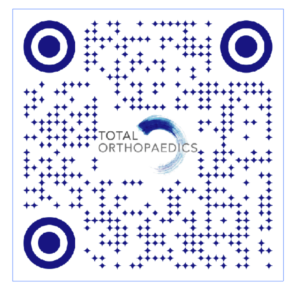


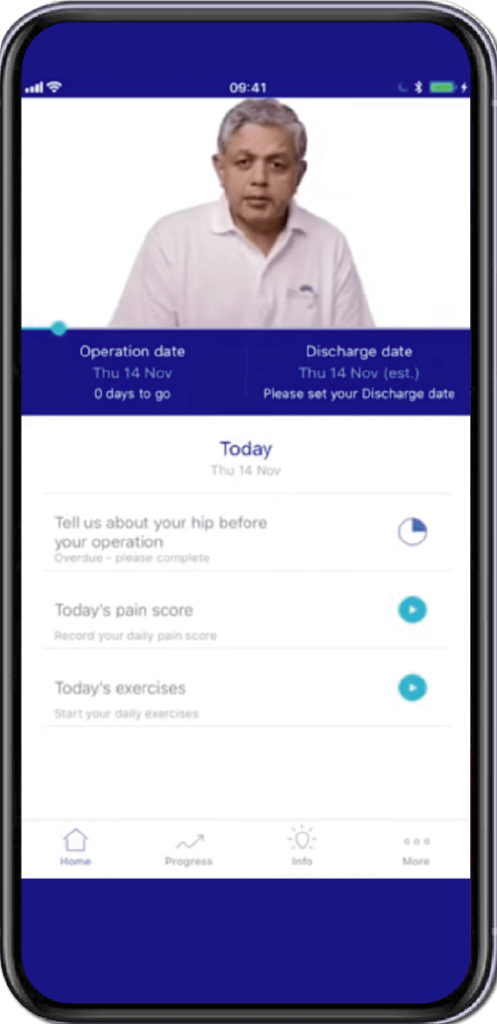


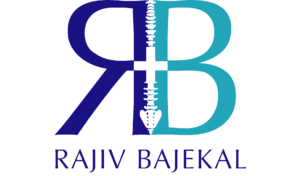


Rajiv Bajekal is a Consultant Orthopaedic Surgeon with special interest in Spinal and Back-related issues. He has developed a pragmatic approach to managing back pain and sciatica with non-surgical techniques, injections and minimally invasive techniques. Mr Bajekal is also a Board-Certified Lifestyle Medicine Practitioner and believes in providing lifestyle medicine advice to his patients for better long term health gains and better spinal health. He has been consulting since 1998. He consults both privately and on the National Health Service (NHS) and is passionate about making sure patients are in control of their healthcare.
Mr Bajekal is a member of the following institutions:
- British Medical Association (BMA)
- British Association of Spine Surgeons
- British Society of Lifestyle Medicine (BSLM)
- Plant-Based Health Professionals
- Patient Information
- Hospital Practices
- Spire Bushey Hospital
- BMI The Cavell
- BMI The King’s Oak
- Contact
- Blog
- Resources
- Glossary
Additional Links
Mr Bajekal works in conjunction with Total Orthopaedics UK. For more details please click here.
For more detailed information on plant-based nutirition please visit: www.rohinibajekal.com
For more detailed information on women’s health please visit: www.nitubajekal.com
